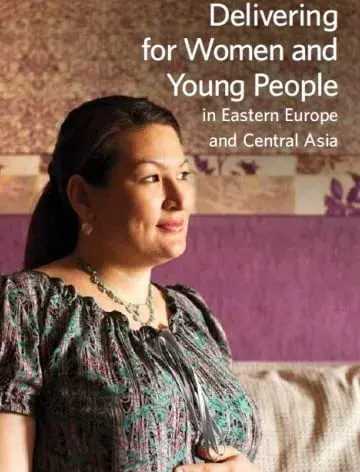UNFPA, the United Nations Population Fund, expands the possibilities for women and young people to lead healthy and productive lives.
We are making real progress. Since UNFPA started working in Eastern Europe and Central Asia in the early 1990s, the number – and rate – of women dying from pregnancy or childbirth has nearly halved. Women are better able to plan when to have children – and how many. Young people are more connected and empowered than ever before.
But not everyone has benefitted equally from this progress. Young women and men often face difficulties in accessing sexual and reproductive health (SRH) services. Serious barriers still exist for poor women, migrants, ethnic minorities and those who live in rural areas. Often left unprepared by school, young people bear a high risk of unintended pregnancy and sexually transmitted infections. As a result, too many adolescents give birth, too many women resort to unsafe abortions, and the Eastern Europe and Central Asia region has one of the world’s fastest growing HIV epidemics. Women face persistent discrimination and gender-based violence remains widespread.
Much more needs to be done to ensure that all individuals in the region can exercise their basic human rights, including those related to the most intimate and fundamental aspects of life.
And as societies grapple with the effects of population ageing, migration, and in some cases population decline, new policies are needed to build human capital through investment in health, education and job opportunities.



